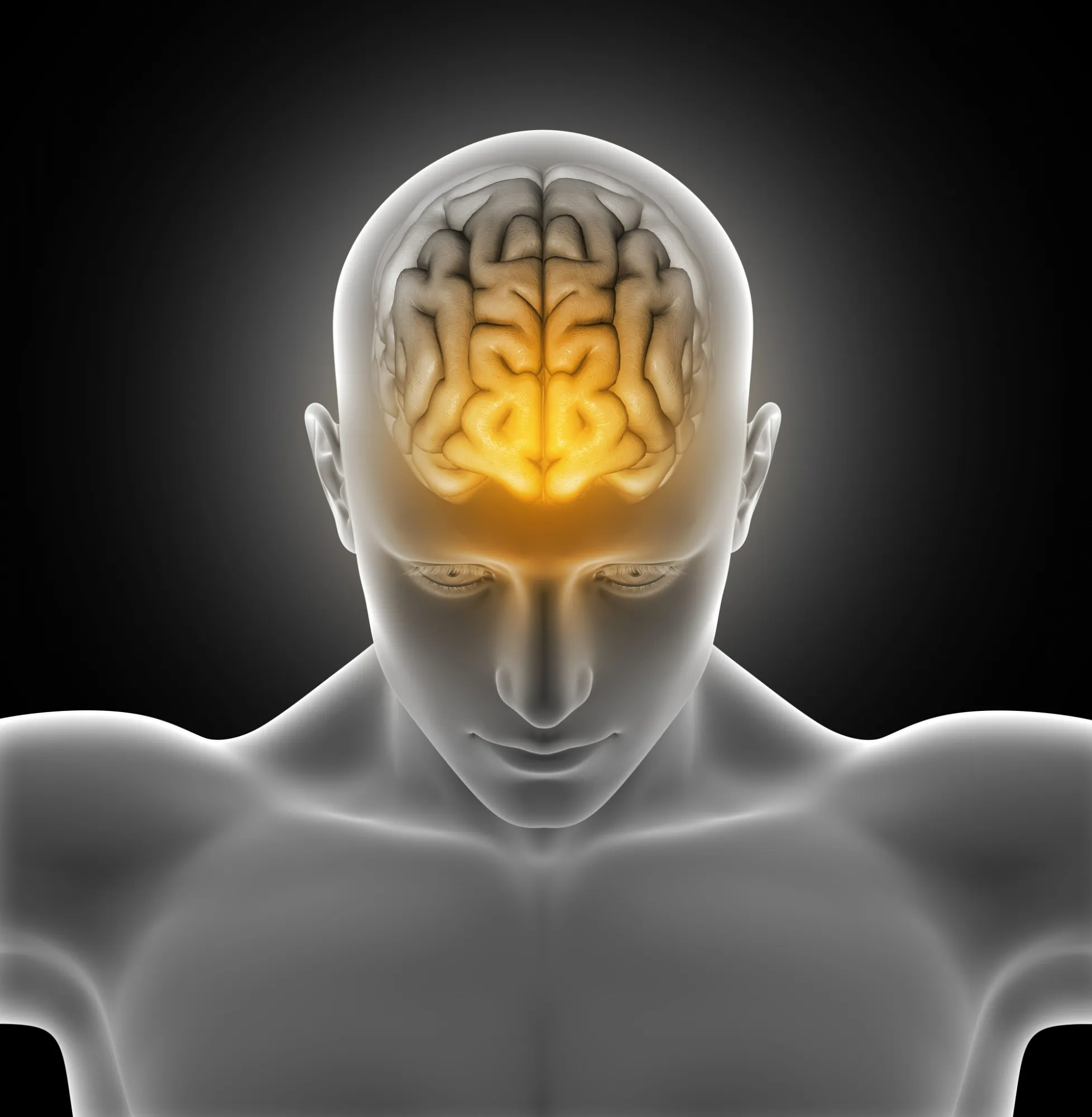You hit the gym hard—iron clanging, muscles screaming, and endorphins pumping. You refuel with a well-deserved protein shake, feeling the satisfaction of recovery wash over you. But what about the rest days? Should you drink protein shakes on non workout days, or is it only necessary after a tough session? Should you reach for that shaker again, or is it better to hold off until your next workout? In this guide, we’ll explore the answer to the common question.
Protein is a crucial supplement for anyone including those who are focusing on protein shakes for weight loss, this pre-workout shake can help control hunger, keeping you fuller for longer and preventing overeating later in the day. It also aids in faster recovery, allowing you to push harder during workouts and burn more calories efficiently. This is vital for building muscle, tissue repair, and recovery, and can help to reduce muscle soreness and fatigue.
The question of drinking protein shakes on non-workout days has puzzled gym-goers for years. Myths and misinformation abound, leaving many wondering what’s best for their fitness goals.
First, let’s bust some myths:
- Myth #1: Protein shakes will make you gain weight on rest days. False! Weight gain boils down to simple math: calories in vs. calories out. Unless you consume more calories than you burn (including those from your shake), you won’t gain weight, regardless of protein intake.
- Myth #2: Protein shakes are only for post-workout recovery. Not true! While protein plays a crucial role in muscle repair after exercise, its benefits extend beyond the gym. Protein is essential for building and maintaining lean muscle mass, supporting bone health, boosting metabolism, and even satiating hunger.
Protein Shake Benefits
1-Enhance Muscle Mass

Consuming a protein shake before a workout not only provides an energy boost but also primes your muscles with essential amino acids, improving endurance and reducing muscle breakdown during exercise. It can also aid in faster recovery, allowing you to push harder and get the most out of your training session.
Including protein shakes for muscle growth in your routine, even on non-workout days, can support continuous muscle repair and help maintain lean mass. Protein is an essential macronutrient that helps build and repair muscle tissue. It is also necessary for many other crucial bodily functions, including hormone production, enzyme activity, and fluid balance.
- In 2015, a study published by the National Library of Medicine found that protein supplements may increase muscle mass and performance when training is sufficiently frequent, intensive, or long-lasting and dietary intake is correctly aligned.
- Another research published by the US Army Research Institute of Environmental Medicine (USARIEM) in 2014 categorically concluded and proved that “acute benefits of protein supplementation on post-exercise muscle anabolism, which, in theory, may facilitate the recovery of muscle function and performance.”
When you exercise, your muscles use more energy and require more protein to maintain and repair themselves. This is why it’s essential to consume enough protein if you want to build muscle mass.
There are many different types of protein, but animal-based proteins tend to be the most effective for building muscle. Foods like meat, poultry, fish, eggs, and dairy are all excellent protein sources. If you’re vegetarian or vegan, you can get protein from plant-based sources like beans, lentils, quinoa, and tofu.
2-Improve Strength

Protein shakes play a vital role in maintaining muscle strength and preventing fatigue. By supporting protein function in the body, they help repair muscle tissue, prevent weakness, and keep your muscles primed for performance.
Protein shake benefits muscle growth and enhances your ability to lift heavier weights by ensuring your muscles stay healthy and resilient. Muscle fatigue and weakness often result from insufficient protein intake, but can also stem from overtraining—making protein shakes a key ally in recovery and long-term muscle health.
A study published in the Indian Journal of Nutrition regarding the Effect of Natural Protein Intake on Power Athletes’ Strength and Body Composition.
A study was made on 40 adult power athletes as subjects of endurance sports, wherein 20 subjects were given a natural protein diet. The subjects received two months of resistance training programs, and their strength was measured. The study concluded that a raw protein diet would significantly affect the stability of power athletes.
3-Improved Brain Function

A protein shake can help improve brain function when consumed regularly, according to research published in The Journal of Nutrition. Protein plays a key role in supporting cognitive health, particularly in older adults and individuals with conditions like Alzheimer’s.
In fact, foods that improve brain function, such as protein-rich shakes, can significantly enhance memory and thinking skills. The study found that individuals who supplemented their diets with 20 grams or more of protein per day showed improved cognitive performance, especially in memory retention and critical thinking tests, compared to those who consumed less protein.
Those who are searching for “How to improve brain function” may involve not just exercise but also the right nutrition. Protein shakes for brain function can provide the necessary nutrients to fuel mental clarity, focus, and overall cognitive wellness.
4-Improved Bone Health

Improved bone health can be supported by regular consumption of protein shakes. Most of your extracellular matrix is composed of collagen, a protein that forms the essential framework for bone development. When calcium hardens this collagen framework, it adds the strength and durability needed for healthy bones.
Together, collagen and calcium make your bones robust and flexible enough to handle physical stress. Protein shakes can play a crucial role in maintaining this balance, as they provide a steady supply of the protein needed for bone formation and maintenance.
Incorporating protein-rich foods or protein shakes into your diet is an excellent strategy for those looking to enhance bone health. This is especially important as collagen levels decrease with age, leading to weaker bones. Supplementing with protein shakes for bone health can help you maintain strong, resilient bones, reducing the risk of fractures or osteoporosis over time.
Research published in Health Journal “Nutrition Today” stated that protein makes up approximately 50% of the bone structure and about one-third of its mass.
It helps improve bone health by increasing the amount of calcium and other minerals absorbed from your food. Hence, dietary protein is a crucial nutrient for bone health across the lifespan. Additionally, protein shakes can help improve bone density by helping form new bone tissue.
Should You Drink Protein Shakes On Non Workout Days?
When it comes to achieving your fitness goals, consistency is crucial—not just on workout days but also on rest days. Should you drink protein shakes on non workout days? Many fitness enthusiasts and nutrition experts believe that incorporating protein shakes into your daily routine, regardless of whether you’re working out or not, can offer a range of benefits. From aiding muscle recovery to supporting weight loss and overall health, maintaining your protein intake even on rest days can play a significant role in optimizing your results. Here’s why making protein shakes a part of your rest day routine might be a smart choice.
1-Muscle Recovery and Repair
Drinking protein shakes on rest days supports muscle recovery and repair. During intense workouts, muscle fibers experience micro-tears that need repair. Protein provides the necessary amino acids to aid in this process, helping to rebuild and strengthen muscles even when you’re not actively training. This continuous support helps prevent muscle soreness and promotes overall muscle growth.
2-Maintaining Lean Muscle Mass
Regularly consuming protein shakes helps to maintain lean muscle mass, which is crucial even on rest days. Because muscle maintenance requires a steady supply of protein to counteract muscle breakdown that can occur between workouts. This is particularly important for those aiming for muscle growth or trying to maintain a toned physique while working towards their fitness goals.
- Research published in 2015 stated that for those new to resistance training, adding supplemental protein may not immediately affect lean muscle mass or strength in the early weeks. However, as the intensity, frequency, and volume of training increase, protein supplementation can significantly boost muscle growth and strength gains in both beginners and experienced athletes. Additionally, research indicates that protein supplements can enhance improvements in both aerobic and anaerobic performance.
3-Enhancing Metabolic Rate Protein shakes for weight loss
can also boost your metabolic rate. Consuming protein on rest days helps sustain an elevated metabolism, which can assist in fat burning and support your weight loss goals. Protein has a higher thermic effect compared to fats and carbohydrates, meaning your body burns more calories digesting and metabolizing protein.
4-Preventing Overeating
Protein shakes can help control appetite and prevent overeating. On non-workout days, when you’re less active, it’s easy to slip into unhealthy eating habits. A protein shake can serve as a satisfying snack or meal replacement, keeping you full and reducing the likelihood of high-calorie cravings, which is beneficial for those focused on weight loss.
5-Supporting Overall Health
Beyond muscle recovery and weight management, protein shakes offer additional health benefits. They can support bone health by providing essential nutrients like calcium and vitamin D, especially if your diet lacks these. Additionally, protein is crucial for various bodily functions, including immune support and hormone production.
6-Balancing Protein Intake
Consistency is key when it comes to meeting your daily protein needs. Drinking protein shakes on rest days helps ensure that you maintain a balanced intake of protein throughout the week, avoiding the fluctuations that can occur if you only consume protein on workout days.
Do Protein Shakes Make You Gain Weight?
Understand the Myth Behind Weight Gain
There are numerous myths surrounding us about fat gain and loss. Your weight is a delicate balancing act, but the equation is straightforward. You gain weight if you consume more calories than you burn.
In other words, you are more likely to gain weight if you consume more calories than your basal metabolic rate, activity energy expenditure, and thermic effect of food required. Keep in mind that the body stores extra calories as fat. Alternatively, you can lose weight by eating less and burning more calories through physical activity.
Maintain Your Caloric Balance
Protein is one nutrient that is sometimes misunderstood. Because of its association with building muscle, many believe that consuming whey protein powder or supplements in other forms will make them gain weight.
The truth is, protein alone – or any other specific type of macronutrient, including fats and carbs – will not make you overweight. You only gain weight by consuming more calories than you burn. In the context of gaining weight, what you drink doesn’t matter to create a caloric surplus. It’s always best to get your energy from nutrient-dense calories that will keep you up for your day.
Best Practices
While counting the benefits of protein shakes, it is worth mentioning that protein powders are unlikely to contribute to weight gain, but how you consume them matters.
For instance, if you increase your calorie intake by adding protein powder to your diet without altering the other portions of your meals, you potentially put on pounds. Of course, some people supplement their diet with protein powder to gain weight, but this is something to keep in mind if you’re attempting to shed pounds.
Protein Shakes vs Natural Protein: Which Impact the Best on Workout
While protein shakes and natural proteins or plant-based proteins can benefit a workout, protein shakes are generally considered the more advantageous option.
It provides a quick and easy way to increase protein intake, which can help boost muscle growth and recovery. Additionally, protein shakes are often lower in calories and more balanced in nutrients than many other popular sports supplements.
However, there are a few caveats to consider when choosing between protein shakes and natural proteins. First, protein shakes are often high in sugar and calories, which can lead to weight gain over time.
Second, natural proteins are typically more filling so that they may provide less energy boost during a workout. Finally, some individuals find that they do not respond as well to natural proteins due to their higher protein content. In these cases, protein shakes may be a better meal replacement.
Ultimately, it is essential to individualize their protein intake based on their goals and preferences. Both protein shakes and natural proteins can be a valuable part of a healthy diet and active lifestyle, but choosing the best option is essential.
Conclusion
As we conclude the discussion on whether to incorporate protein shakes on non-workout days, it’s essential to recognize the significance of essential amino acids in meeting long-term protein requirements. A high-protein diet, ideally around 0.8 grams of protein per kilogram of body weight, is crucial for supporting muscle groups and promoting overall health. Integrating protein-rich foods like peanut butter into your dietary routine contributes to this balance.
In the pursuit of fat loss and the well-being of healthy adults, understanding the bottom line—that protein intake plays a pivotal role in sustaining muscle health and reaping health benefits—is paramount. So, whether on workout or rest days, striking the right balance in protein consumption becomes an integral component of your journey toward long-term wellness.
FAQs
How many protein shakes a day?
The ideal number of protein shakes per day depends on your fitness goals, body weight, and protein needs. For most people, one to two protein shakes a day are sufficient to meet their dietary protein requirements. If you’re aiming to build muscle or need extra support for weight loss, you might benefit from two shakes daily, especially post-workout and during rest days. However, it’s important to balance protein shakes with whole food sources to ensure a well-rounded diet.
What can you not add in a protein shake?
Certain ingredients should be avoided when making a protein shake to keep it healthy and effective. Stay away from high-sugar additives like processed syrups, flavored yogurts, or sweetened fruit juices, which can increase calories without providing much nutritional value. Additionally, avoid artificial sweeteners and low-quality protein powders that contain unnecessary fillers. Instead, opt for natural ingredients like fresh fruits, unsweetened almond milk, and high-quality protein powder to keep your shake nutritious and effective.
When is the best time to drink a protein shake?
The best time to drink a protein shake depends on your goals. Post-workout is widely considered the optimal time to consume a protein shake, as it aids in muscle recovery and growth. Drinking a shake within 30 minutes after exercise helps to replenish amino acids and supports the repair of muscle tissue. Additionally, consuming a protein shake before workout can boost energy levels and prepare your body for intense activity. For those focusing on weight loss, a protein shake in the morning or as a meal replacement can also be beneficial.
Share this content:




